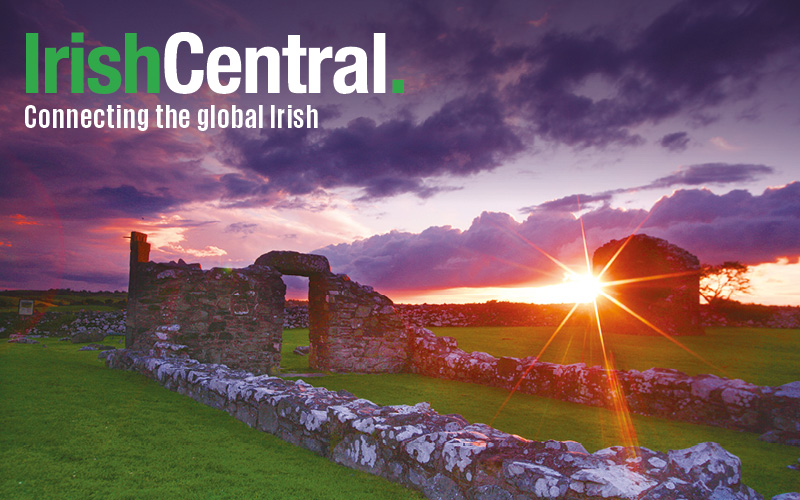Photo gallery of Eurovision stars: Click here
It’s difficult to know where to start in explaining the Eurovision song contest to the uninitiated.
So let’s begin with the basics: It’s an annual European-wide song contest that has been in existence for over half a century, and it takes place this week in Moscow.
A bizarre mixture of kitsch and camp, it counts among its previous winners an Israeli transsexual (Dana International, 1996) and a Finnish heavy metal band (Lordi, 2006).
Some of its losers have been even more bizarre – a singing puppet called Dustin the Turkey made Ireland the laughing stock of Europe in 2008, with his song, “Irlande Douze Point”, a kind of insider Irish joke that no one beyond the northside of Dublin found funny.
And let’s move on to two familiar reference points: Abba and Riverdance.
Most bands, when they win the contest, fade into well-deserved obscurity. (Who remembers Denmark’s Olsen Brothers who won in 2000 with “Fly on the Wings of Love”?)
But there are a few exceptions – Abba, who won the competition in 1974 with "Waterloo," being a good example.
The Eurovision, among its many other crimes, is also responsible for inflicting Riverdance on the world: it was during the interval of the 1996 competition that the Irish dancing sensation first appeared, and it instantly became a hit.
Perhaps a more heinous crime was kick-starting Celine Dion’s career. She won in 1988 with a song called “Ne Partez Pas Sans Moi” for Switzerland.
If you are American, the chances are you haven’t heard of this competition so here then is an attempt at an explantion: the Irish Central guide to the Eurovision.
It’s a pretty big deal
Ok, so musically, it’s not really a big deal, because most of the music is bland, banal middle-of-the road nonsense.
But in terms of popularity, it is a big deal: the contest has been broadcast every year since it begin in 1956 – back then seven countries competed; today there are forty-two countries in the competition. (Which include the arguably not-so European countries, Turkey and Israel.)
It’s also one of the most watched television events in the word. Up to 600 million people worldwide have turned out to see the Eurovision, which has also been broadcast in non-participating countries Australia, New Zealand, Korea, the U.S., Canada, Hong Kong and India.
There was time when Ireland kicked Eurovision ass
Ireland has won the Eurovision a record seven times. (Luxembourg, France and the United Kingdom come in joint second, having won five times.)
Irish domination of the contest began in 1970 with a song called “All Kinds of Everything” by an 18-year-old singer called Dana. (Who would return to the public eye some years later as an extremely conservative Catholic politician, becoming a member of the European Parliament.)
During the 1980s in Ireland, one of the few things the country had to cheer for was a crooner called Johnny Logan, who won the contest twice during that decade, in 1980 with “What’s Another Year?” and in 1987, with “Hold me Now.” (Which was very tastefully re-worked as a McDonald’s jingle for their legendary Eurosaver menu ad in 2007.)
Logan – eventually dubbed Mr. Eurovision – wrote the 1992 winning song for an Irish singer called Linda Martin, “Why Me.”
At one point, Ireland was winning the Eurovision so much that it began to bankrupt the national broadcaster, RTE, which would have to host the contest four times over the 1990s. (The tradition is that the country that wins the contest is the host the following year.)
The huge cost of hosting the event has led to some theories that Ireland began entering deliberately atrocious acts so that it wouldn’t win and have to host the following year’s contest.
And in recent years, this makes some degree of sense: Ireland finished joint last in 2007, tying with Albania, and couldn’t even reach the final last year.
It’s all politics
Add a good dose of politics to all that kitsch and camp.
Countries invariably vote for their neighbors, with Ireland and Britain usually exchanging votes.
However, because the two are islands, they tend to lose out on the “good neighbor” factor. Statisticians have identified a number of different “voting blocs” such as the Baltic States, the former Balkans, and Scandinavia, who do well out of these mutually beneficial arrangements .
Voting is done by text, as the viewers in each country can text or phone for their favorite song. Viewers cannot vote for their own country.
Then each country gives 12 points to the most popular entry, 10 points to the second most popular, and so on until it gets to one.
The thing is, and anyone who has been to a Eurovision party will tell you this, the voting part is the only part of the Eurovision that is actually bearable.
The music part is relentlessly awful – why would anyone care what countries such as Croatia, Lithuania and the Ukraine have to offer the world of middle-of-the-road pop?
It’s the voting that’s the fun part – and every year it’s the same deal, as countries such as Sweden and Norway, and Greece and Cyprus trade high points.
And finally…
Fundamentally, the Eurovision is, well…European! There’s not much else that ties countries as different as Portugal and Albania, or Ireland and Cyprus together, apart from the Eurovision.
(Ok, so there is also the European Soccer Championships, but they only take place every four years, and only 16 countries qualify for those. Ireland has only qualified for that competition once, in 1988.)
The Eurovision is the one event that seems to unite all of Europe. True, often not in the way competition organizers hope – but better be united in deep embarrassment, than not united at all.




Comments